Roses are one of the most popular flowers in the world and for a good reason. They are beautiful and come in a variety of colors and sizes. Unfortunately, Rose plants also contain some pests. When choosing a management strategy for an insect pest of Rose plants, it is important to identify the type of insect pest causing damage first. Once this has been determined, the appropriate management method should be selected based on the characteristics of the particular pest.
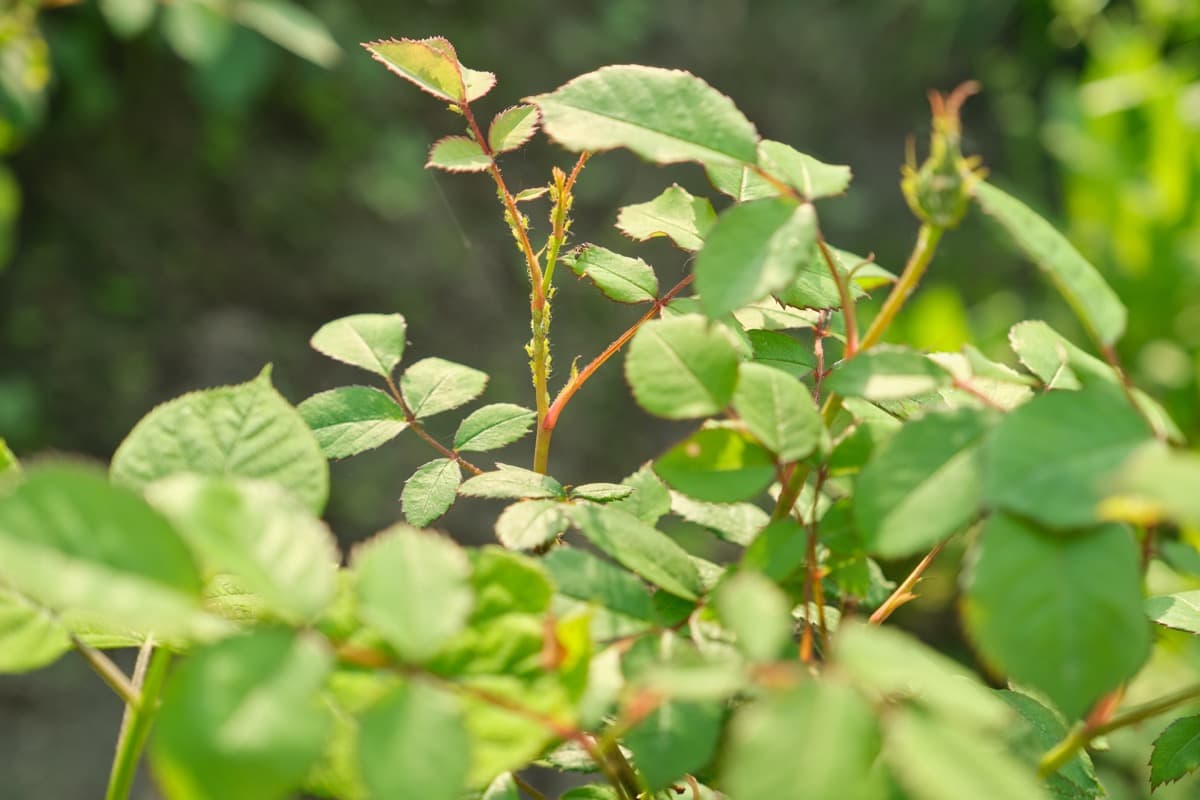
Insect Pests of Rose Plants
Aphids
Aphids are small insects that feed on various plants. They can be a nuisance to Rose gardeners because they can deform flower buds and spread disease. There are many different types of aphids, each with a preference for plant species and feeding location. Some aphids are attracted to light, while others prefer dark areas.
Organic methods for managing aphids include using natural pesticides such as pyrethrum or organic acids such as vinegar or baking soda. Use chemical insecticides if you have difficulty controlling aphids on your Rose plants with organic methods. Remember that these products must be applied correctly; misuse can lead to chemical toxicity and damage to your plants. By using a garden hose, you can remove aphids.
Thrips
Thrips are small insects that can cause significant damage to Rose plants. They are attracted to the plant’s juices and produce a toxin that causes the leaves to turn yellow and curl up. Various chemical treatments, including neem oil or pyrethrin, can control thrips. It is important to read the product label before using these chemicals, as they can also harm other plants in the garden.
In case you missed it: How to Grow Rosemary from Seed to Harvest: Check How this Guide Helps Beginners

Planting shrubs and Roses close together will help reduce contact between the plants and pests. Additionally, try to use organic fertilizers when possible to help deter pests and promote healthy Rose growth. Several natural remedies for thrips include garlic, peppermint oil, and diatomaceous earth (a soil amendment). These remedies should be applied when evidence of thrips activity on the plant.
Rose Chafer
Rose chafer is a destructive insect that can cause significant damage to Rose plants. Rose chafer can be controlled with various pesticides, but care must be taken to avoid harming beneficial insects and other plants in the area. Rose chafer is a small, brown beetle that feeds on Roses and other flowering plants. They damage plants by feeding on their leaves, flowers, and fruit. Rose chafers are difficult to control but are managed in several ways.
Organic management techniques, such as planting resistant varieties, can help reduce the need for chemical treatments. Rose chafer can be controlled with a variety of pesticides. Care must be taken to avoid harming beneficial insects and other plants. Rose chafer can be managed organically by planting resistant varieties, growing cover crops nearby, or using Bacillus thuringiensis products applied before blooming time. Bacillus thuringiensis products work by poisoning the beetle larvae, and they should not be used if bees are present near the garden.
In case you missed it: How to Grow Rose Plants from Cuttings to Harvest: Planting Guide for Beginners
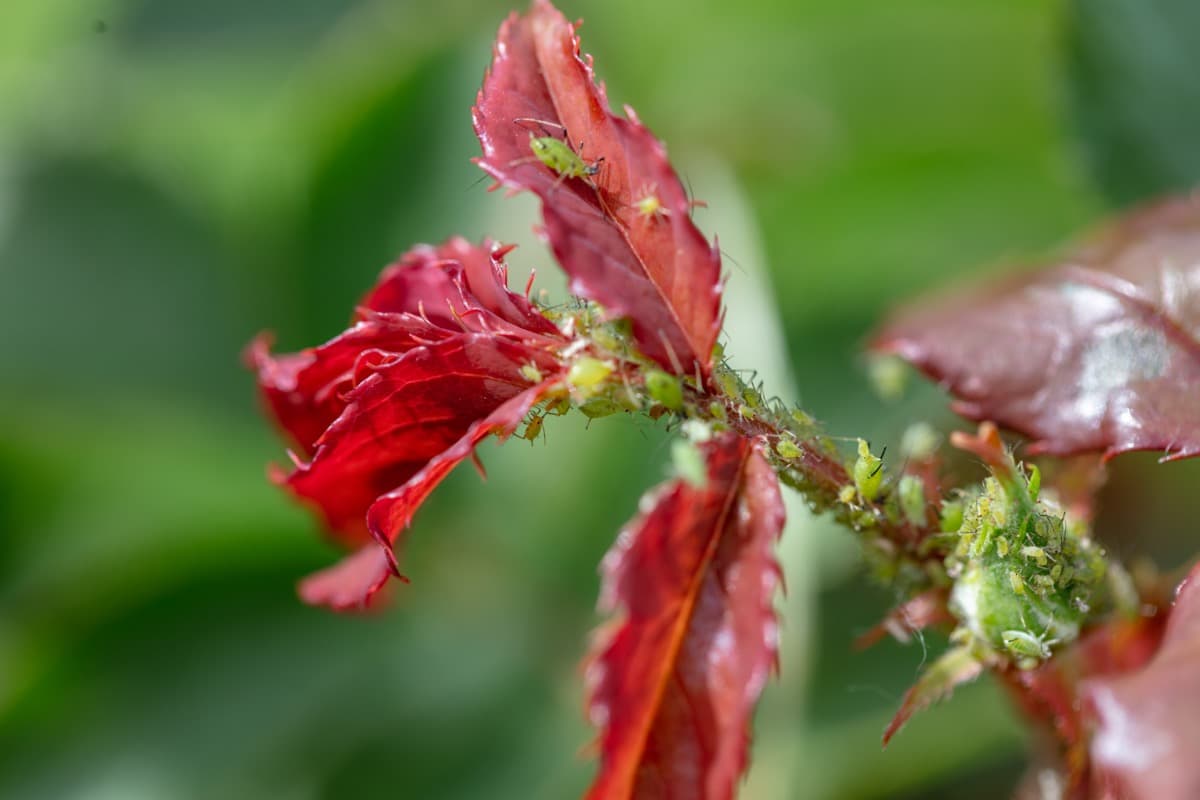
Japanese Beetles
Japanese beetles are a common insect pest of Roses. They typically feed on the leaves and flowers, causing premature loss of foliage and reduced flower production. There are many different management techniques for controlling Japanese beetle populations. Chemical control is the most commonly used method to manage Japanese beetle populations. This type of management often involves using pesticides to kill adult beetles and their larvae. Organic controls are also popular for managing Japanese beetle populations.
This type of management focuses on reducing or eliminating opportunities for the beetles to feed on Roses. Organic practices can include planting alternatives to Roses that are less attractive to the beetles, such as invasive species that have little or no value to humans, or cover crops that act as a barrier between Rose plants and wild pests. Various techniques, such as dragnetting or releasing predatory birds into areas with high beetle populations, are part of natural management strategies.
Rose Sawflies
Rose sawflies are small, brown insects that lay their eggs in the leaves of Roses. The larvae feed on the leaves, often causing them to curl and die. Rose sawflies can cause significant damage to Rose plants and are one of the easier insects to control with chemical or organic methods.
Rose sawfly eggs can be controlled by using nematicides on Roses early in the season when populations are low. Biological controls such as parasitic wasps can also control Rose sawfly populations. If used regularly, organic methods such as insecticidal soaps or horticultural oil can effectively control Rose sawflies.
Spider Mites
Spider mites are small, eight-legged creatures that can be a nuisance to Rose plants. They thrive in warm, humid environments and can cause leaves to curl, turn yellow or brown, and drop off the plant. Spider mites are attracted to oils and other chemicals used on Rose plants, so it’s important to keep these pests under control with chemical treatments or organic methods.
In case you missed it: 18 Common Rose Plant Problems: How to Fix Them, Solutions, and Treatment
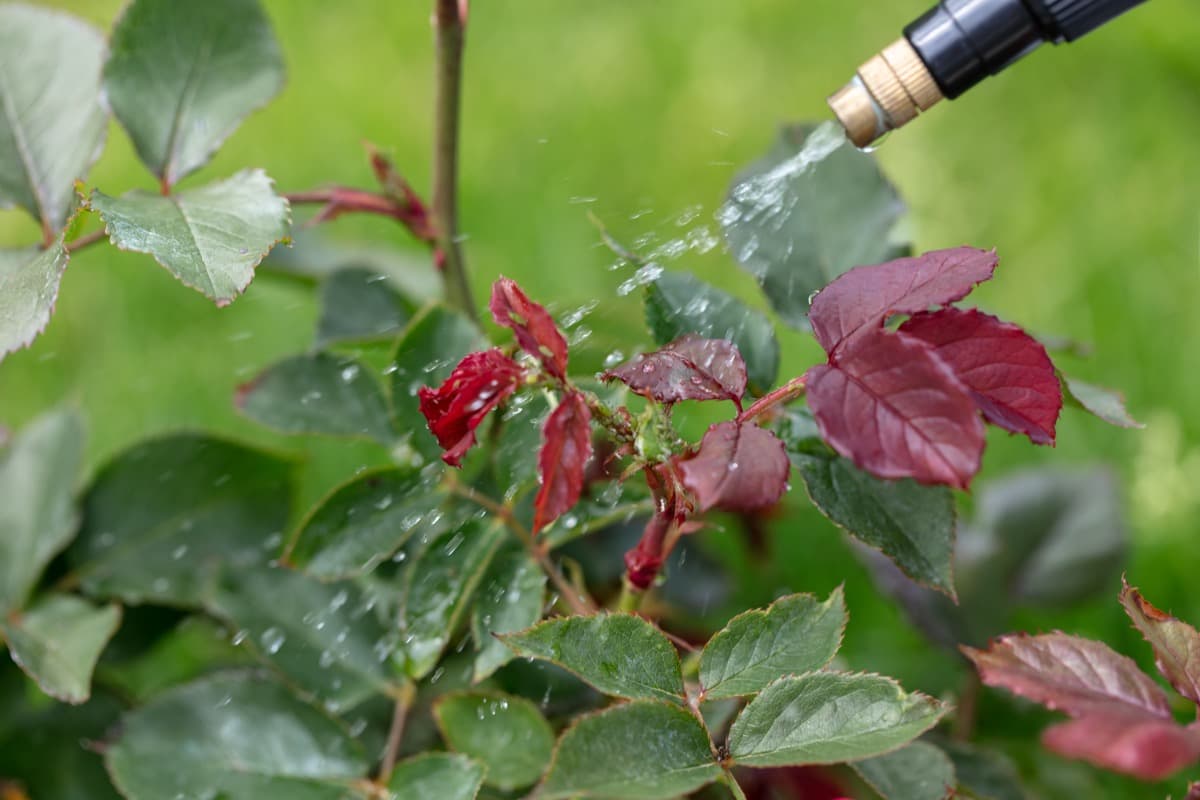
Many different types of chemicals can be used to control spider mites. Some organic controls include using pesticides such as carbaryl; however, these products may not always be effective, especially if used during the early stages of infestation. Natural methods such as exposing plants to increased levels of sunlight or sprinkling water with garlic onto plants can also kill spider mites.
Midges
Midges are small flies that usually live near water. They are attracted to the nectar and pollen of Rose plants. Midges often cause damage to flowers and fruits. Damage can range from mild to severe, depending on the type of midge and the severity of the infestation.
Rose plants can be protected from insect damage by using organic or natural methods. Organic methods include applying soap or oil to the leaves before insects arrive, using traps to catch larvae, or placing pieces of fruit or vegetables around the Rose bushes. Natural methods include planting fragrant herbs near the Rose bushes, using garlic around flower buds and stems, or hanging strips of cloth near Rose bushes to trap flying pests.
Rose Scale
There are a few chemicals that can be used to treat Rose pests. One of these is malathion. Malathion is a contact poison that kills insects through their nervous system. You should read the label before using this product, as it can have serious side effects if not used correctly. In addition, many organic Rose growers swear to use beneficial nematodes to control insect pests. These microscopic creatures feed on insect larvae and pupae and can help suppress populations for extended periods without harsh chemicals.
One approach to controlling Rose pests is to use natural predators or parasites. Some species of ants, wasps, ladybugs, spiders, and lacewings will eat Rose pests in large numbers. Again, this may require experimentation to find which predator or parasite works best for your specific situation. Still, it may be worth trying some of these fewer toxic options instead of using chemicals if possible.
In case you missed it: How to Prepare the Soil for Rose Plants: Best Soil Mix, pH, Compost, and Recipe
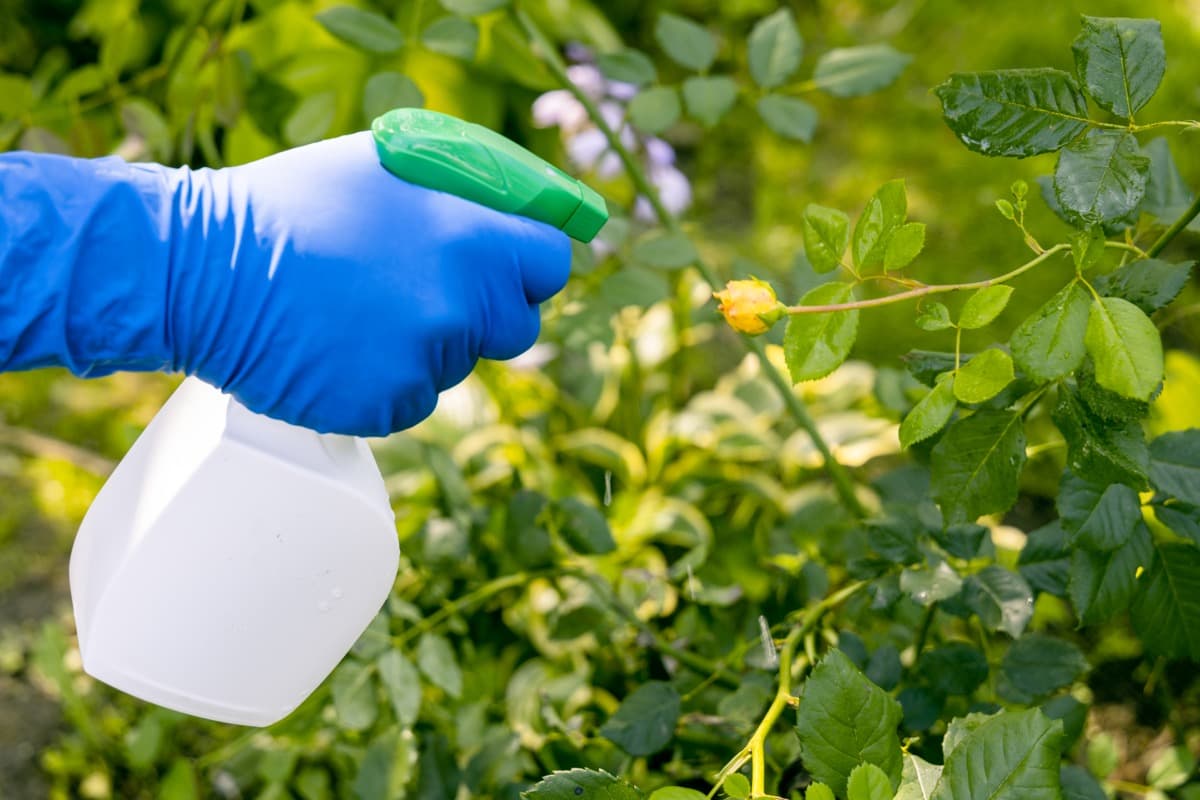
Fuller Rose Beetle
The fuller rose beetle is a small, brown beetle that feeds primarily on the petals and leaves of Roses. The beetles can cause significant damage to Rose foliage, ultimately reducing the size and number of flowers produced. Chemical management of fuller rose beetles focuses on using insecticides that kill the beetles. Organic management of fuller rose beetles focuses on managing rose pests with natural pesticides.
One example of a natural pesticide that can control fuller rose beetles is pyrethrum extract. Pyrethrum extract is toxic to insects and plants, making it an effective tool for controlling these pests. Natural management of fuller rose beetle includes preventing their entry into your rose garden in the first place. To do this, keep your Rose bed well-maintained by removing debris and planting new Roses near the edge of your property.
Leafhoppers
There are numerous insect pests of Rose plants, each requiring a different approach to management. Leafhoppers are one group of insects that commonly feed on Roses. These small, brown-and-orange insects can cause significant damage to Roses by feeding on the leaves and flowers. In addition, leafhoppers can transmit plant viruses and other plant diseases. Control measures for leafhoppers include applying insecticides or using natural predators to control populations.
In case you missed it: How to Prepare the Soil for Rose Plants: Best Soil Mix, pH, Compost, and Recipe

Leafhoppers are attracted to red and feed on any part of the Rose plant, including the leaves, flowers, and stems. To prevent or manage leafhopper damage, it is important to identify the type of leafhopper infesting your Rose plants and use appropriate control measures. Chemical controls include using insecticides against specific leafhopper species or baits that lure in and kill pests. Organic controls include using nontoxic insecticidal soap or treating plants with pyrethrum dust. Finally, natural controls include ladybugs and predatory mites.
Whiteflies
Whiteflies are small, winged insects that feed on the nectar and pollen of Roses. These pests can cause significant damage to Rose plants, particularly during early growth when they are most active. Chemical control is the most common method used to manage whiteflies. Insecticides can be applied as a vapor, dust, or liquid concentrate. It is important to read and follow all product label instructions carefully, as not all products are equally effective against whiteflies.
Some insecticides harm other organisms in the environment, so it is important to use products labeled for use on Roses specifically. Organic methods of controlling whiteflies include using natural predators such as ladybugs or lacewings and applying bacillus thuringiensis spray at planting time. Organic methods are more environmentally friendly than chemical controls but may be less effective against whiteflies.
Rose Scale
The Rose scale is a small, soft-bodied insect that feeds on the sap of Roses. There are many different ways to control the Rose scale. Chemical management uses harsh chemicals such as malathion to control the Rose scale population. Organic management includes cultural practices such as pruning off dead branches and applying systemic insecticides.
Natural methods include squirting the plant with hot water, making a garlic/sulfur solution, or spraying Bacillus thuringiensis on the plants. Chemical management includes using commonly available pesticides, but organic and natural methods are also effective. Rose scale can be controlled with various products, including soap and water, insecticidal soaps and oils, or baits containing pyrethrin and other repellents.
In case you missed it: Rose Planting Questions and Answers (FAQs)
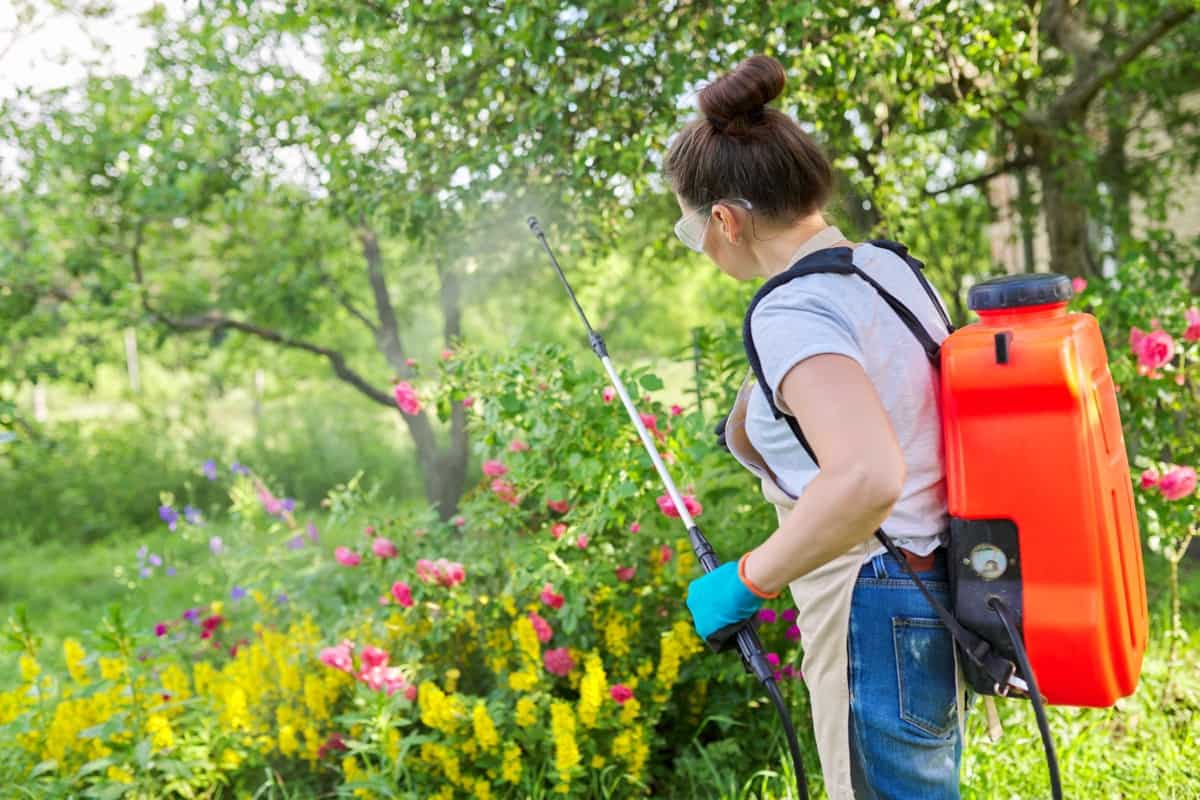
Conclusion
Insect pests of Rose plants can be managed with chemical, organic, and natural methods. While some control measures are effective against various pests, others may only be effective against certain pests. Because insect pests can vary greatly in their susceptibility to various management tactics, selecting the most effective treatment for your pest problem is important.
Each type of management has its benefits and drawbacks, so it’s important to choose the right approach for the particular infestation. To get the most out of your Rose garden, it is important to understand how insect pests affect Rose plants and develop an effective management plan that fits your specific landscape and gardening needs.
- How to Grow Tomatoes Organically at Home: A Comprehensive Guide
- Organic Gardening on a Budget: Low-Cost Methods and Materials
- Gongura Seed Germination and Planting Methods
- Cabbage Seed Germination and Selection
- Broccoli Seed Germination and Selection
- Asparagus Seed Germination and Variety Selection
- Seasonal Flower Gardening: Best Practices for Spring, Summer, Fall, and Winter
- How to Grow Hibiscus from Flower
- Plantation Ideas for Home Decoration: A Beginners Guide
- Flower Garden Designs and Layouts for Beginners
- Planting and Spacing Techniques in Papaya: A Beginner’s Guide
- Growing Gold: Essential Techniques for Planting Pineapples
- How to Make Kalanchoe Plant Bushy: Home Remedies and Solutions
- 11 Reasons Why Your Gardenia is Not Blooming: Home Remedies and Solutions
- Eco Elegance: The Guide to Designing a Drought-Tolerant Landscape
- Gardening on a Slope: Strategies for Hillside Landscaping
- Nourish and Flourish: Top Organic Mulches for Thriving House Plants
- Everything You Want to Know about Indian Mogra Flower: Discover Uses and Growing
- Green Thumb Success: Expert Tips for Cultivating Greenhouse Pumpkins All Year Round
- Maximize Growth & Flavor: The Ultimate Guide to Companion Planting in Herb Gardens
- How to Control Rhododendron Problems Naturally: Home Remedies and Organic Ways to Fix Them
- Natural Magic: The Remarkable Benefits of Cinnamon for Plants
- Best Steps to Revive Dying Tulip with Natural and Organic Treatment
- 10 Reasons Why Your Angel Trumpet is Not Blooming: Remedies and Treatment
- How to Fix Periwinkle Leaf and Flower-Related Problems: Natural Remedies and Solutions
- How to Fix Zinnias Leaf and Flower Problems: Discover Natural and Home Remedies
- Organic Steps to Induce Lemon Tree Flowers: A Comprehensive Guide
- Bloom Booster: Crafting the Perfect Homemade Bougainvillea Fertilizer
- Optimizing Growth: A Guide to Applying NPK Fertilizer for Potted Plants
- 10 Best Homemade Fertilizers for Rubber Plant: DIY Recipes and Application Method
- How to Boost Female Pumpkin Flowers: Effective Steps for More Flowers and High Yields
- Transform Your Indoor Garden: Top Benefits of Pink Salt for Houseplants
- 10 Best Homemade Fertilizers for Peacock Plants (Calathea): Easy DIY Guide
- Unlock Blooms: 9 Reasons Why Your Potted Chrysanthemum is Not Blooming
- 8 Reasons Why Your Potted Hibiscus is Not Blooming: Fix it with Simple Solutions
- Unlock Blooms: 9 Key Reasons Your Potted Frangipani Won’t Flower